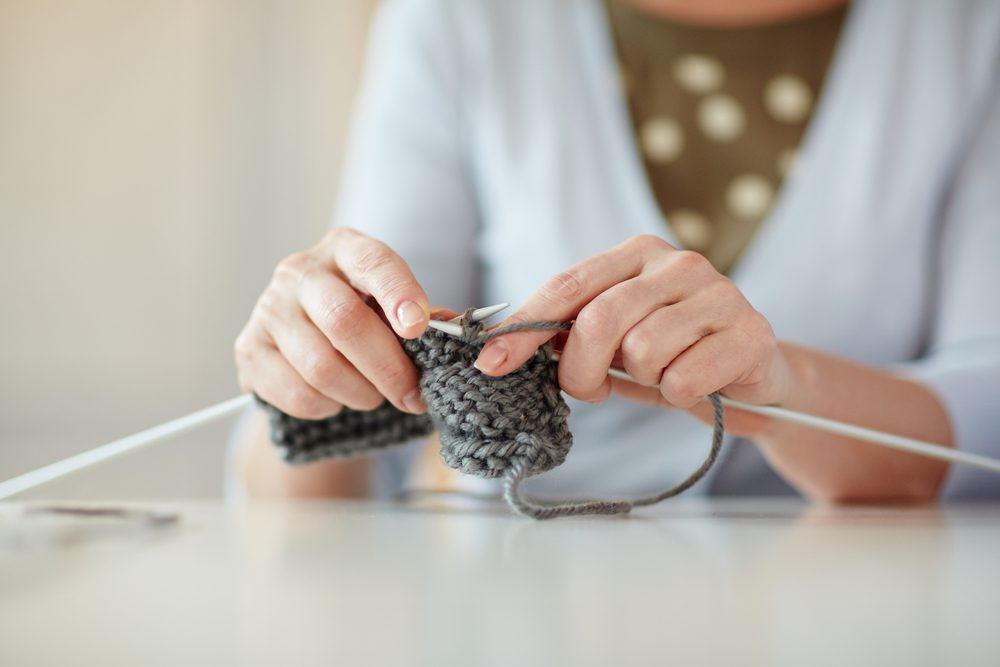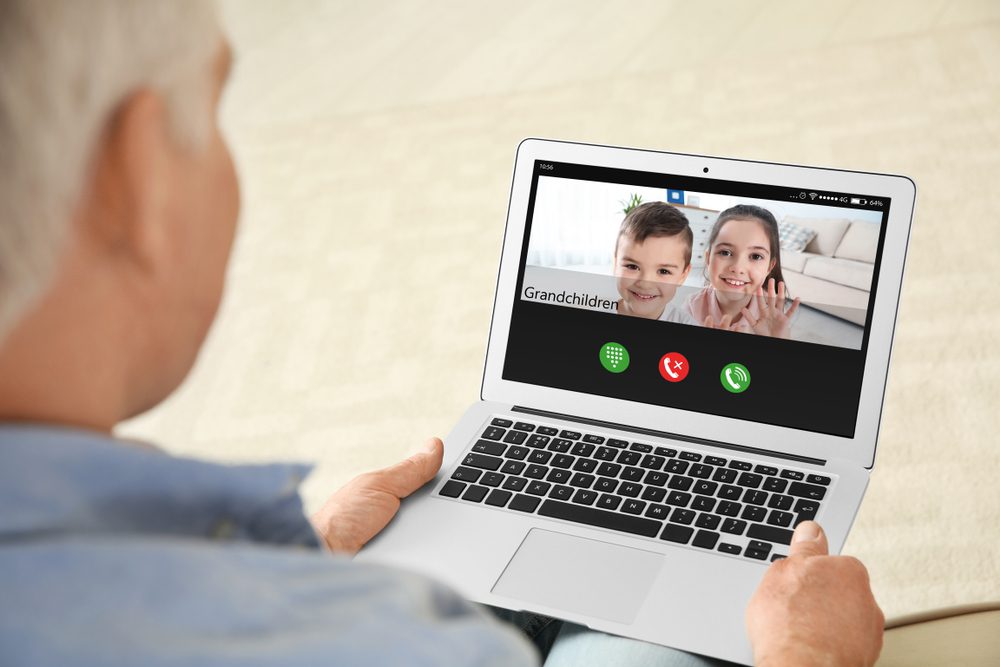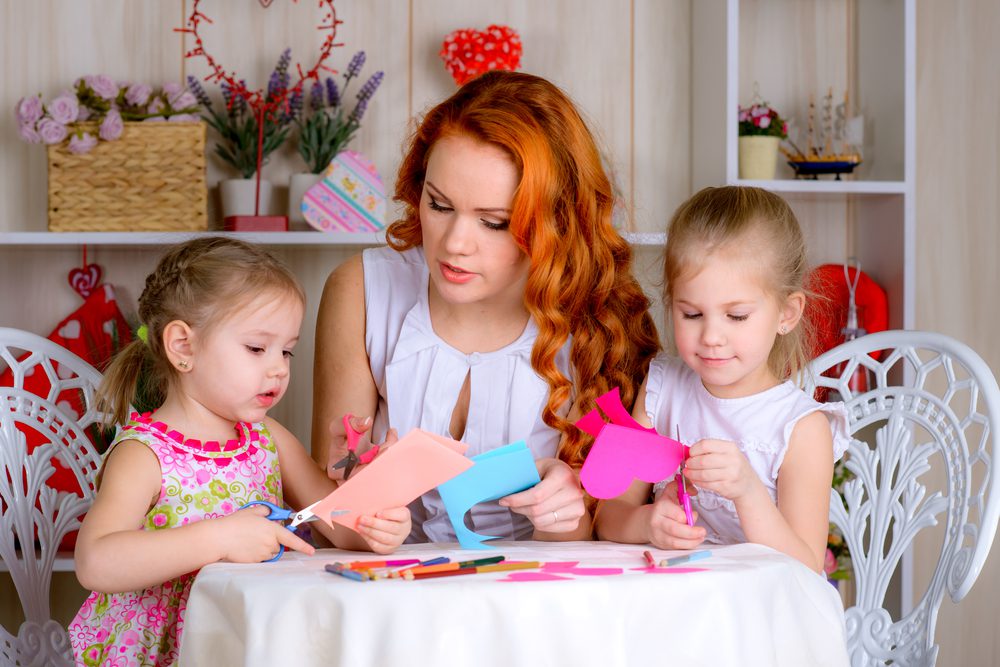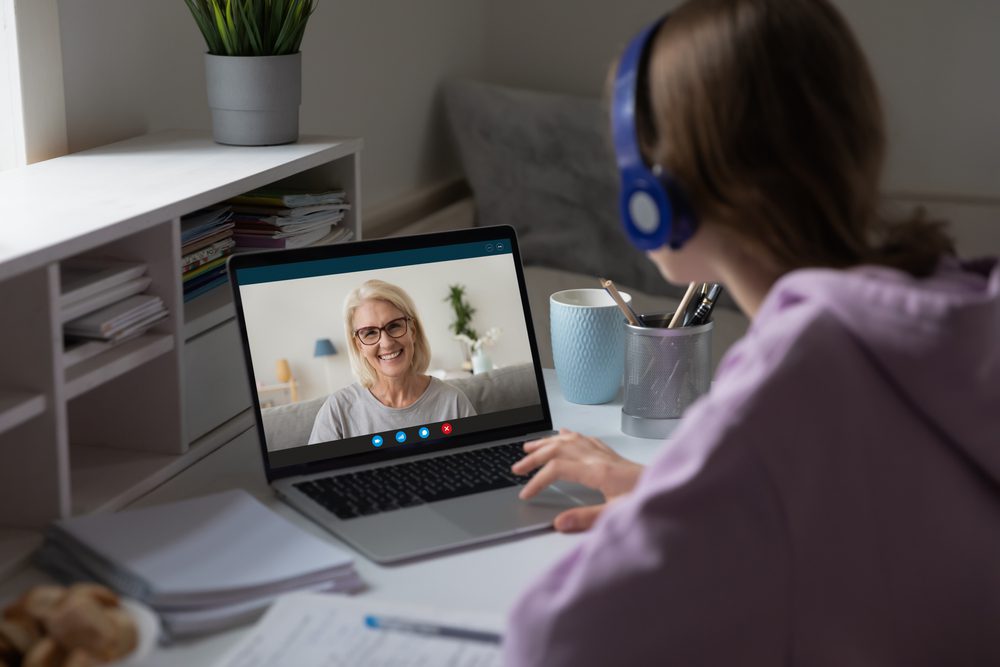
Easing Isolation
The social distancing rules meant to prevent the spread of COVID-19 have been challenging and tough for most of us, but they can be particularly difficult for elderly people who may be stuck at home alone, feeling isolated from society and their loved ones. In the absence of their families and friends and without the ability to take part in their regular outdoor activities, it can be hard for seniors to avoid feeling lonely.
To prevent this, it’s important to find new methods to connect and stay in touch with their loved ones amid the social distancing and self-quarantines. “Remaining connected is especially important for people who live alone; regular social contact can be a lifeline for support,” according to the AARP report. Read on to find out 13 creative ways you and your elderly relatives can stay connected while practicing social distancing.
Start a Pen Pal Activity with Grandchildren
There are many ways you can engage elderly people and mail is one of them. Anne Armstrong, a mother, teacher, and founder of toy company My Gnome on the Roam, says she involved her children and her mother in a pen pal activity. Children think of questions and write them to their grandmother while the grandmother replies. Simple as that!
“We send interview questions and she replies with the answer,” says Armstrong. “I’m compiling these into a book.” There are so many questions children can ask their elderly grandparents, she adds, such as “Tell me a memory you have of when you were my age,” or “Tell me about your parents, or how was school different when you were a child.”

Ask an Elderly Relative to Make You Something
No matter your age, you feel connected when you feel useful and helpful. This is especially valid for elderly people, says Sirarpi Sahakyan, a relationship expert for Self Development Secrets. “Ask them to paint or knit … Pretty much anything that they like doing and would love to see it being useful,” recommends Sahakyan. “Likewise, do something for them in return.” It does not matter if it’s something you made on your own or something delivered that they wanted, the continuous exchange will keep them engaged, connected, and excited.
Have Recurring Virtual Family Dinners
Let the technological advances work in your favor and keep you in touch with your elderly relatives. Video services such as Facetime and Skype can make your life and the lives of the ones you love much easier by bringing all of you together, even if not physically.
Casey Rydbick, founder of Senior Care Center, recommends scheduling recurring video calls for dinner that take place on the same night each week. “Families and seniors can even coordinate having the same meals and preparing the meals together over the video chat,” says Rydbick. “The use of video chat can greatly increase an elderly person’s connectivity and feelings of inclusiveness during an activity like this. Having dinner is obviously something we all need to do, and since it’s already a part of our lives, having a regularly scheduled video chat can help family members, as well as senior loved ones, feel included in regular daily life, and maintain a sense of unity and togetherness in these stressful times.”

Play Games Over Video Chat
Another activity you could schedule to help you spend some time with your elderly loved ones is playing games over video chat. According to North Carolina resident Maura Horton, “the classics like Monopoly, Life, checkers, and Scrabble, are a hit with all generations and keep kids of all ages, and the kid inside adults, entertained”.
“Since you can’t be together, try playing games virtually … You can watch each other make moves via video chat.” You can also try bingo since it can also be played from different locations virtually. “This is a whole new level of playing games that can cause even more laughter, which we all need right now,” says Horton.
Participate in a Learning Project Together
Another challenge with seniors is keeping them stimulated and mentally active, says Povenmire, the California-based licensed psychologist. To help them stay alert and proactive during isolation, you could suggest participating in a learning activity together. “This can include taking a language lesson and quizzing each other on vocabulary or agreeing that each of you will learn about a different country, animal, or historical figure and share that with the other,” says Povenmire. “This can be adjusted to include different generations in the family.”

Schedule Frequent Talks to Discuss Current Events Together
You can also help your elderly relatives stay alert and up-to-date with events by suggesting that each of you find a news story or human-interest article that interested, amused, or shocked you, and then debate it together, says Povenmire. “Exchanging information about current events is a good way for people who are alone to be abreast of important news that may affect them or to learn about resources in the community,” she explains.
Attend Online Spiritual Services Together
If your family is religious and used to attend services, try finding online services to participate together, says Rydbick. “Many (online religious) video services will have a feature where viewers can even interact with each other online,” says Rydbick.

Send Homemade Cards
Take out your crayons, construction paper, and markers and a beautiful homemade card for the seniors in your family, says Mary Koczan of Gift Card Granny. “Get the whole family involved,” explains Koczan. “Or, if you prefer, take the time to write a personalized letter letting them know what you’ve been up to, what you miss about seeing them, and be sure to ask for a letter in return. This way everyone can keep in touch and has something to look forward to when the mail comes.”
Send Pictures in the Mail
If crafting is not your thing, you could try mailing an envelope full of pictures to bring a smile on the face of an elderly loved one, says Melanie Musson, mental health and wellness writer for the life insurance site Quick Quote. “Each week, print a couple of pictures from each day,” says Musson. “Write the story of what’s happening on the back of the pictures and send them to your elderly relative or friend. This idea is perfect for seniors who aren’t very savvy with the internet.”

Arrange Regular Family Zoom Meetings
Zoom is an extremely popular subscription-based service specialized in video communications. Four weeks ago, when Pennsylvania resident Jennifer Bright and her family decided to shelter in place, she started a weekly family Zoom call and the results were spectacular. “We have five generations on the calls (ranging in age from one to 86). They are funny, supportive, poignant” says 49-year-old Bright, founder of Bright Communications. “We are in four different states and I feel more connected to my family than I ever have. We’ve had three so far and they have been wonderful.”
Organize a Family Slideshow Via Zoom
Marisa Pasquini, an expert on dementia care and author of the book “Surviving Dementia Without Losing Your Mind” recommends going a little further with your Zoom family meetings and using them as a time to take a journey to the past and reminisce together, visually, of course. “Have the family archivist put together a family slideshow via Zoom’s screen-share feature. The shared memories can bring family together and give older relatives a sense of belonging during this time of isolation,” says Pasquini.

Plan Virtual Lessons
Is there something you’ve always wanted your grandmother or grandfather to teach you? Well, what are you waiting for? You have all the time in the world to call on them to provide lessons via Facetime, Skype, or some other similar platform, says Horton, The Care Coach. “Set up virtual lessons for your kids or grandkids of things you always wanted to teach or they always wanted to learn but there was never time for – teach them how to knit or sew, or give cooking lessons.”
Create a Family Recipe Book
Elderly people love to cook and can offer plenty of tips and tricks to improve your cooking skills. More than that, you could ask the seniors in your family to help develop and gather all of your favorite family recipes into a book. Think of it as something that can be passed down to children or grandchildren.
“The recipe book can be a printed copy or a digital book. Get creative with it,” says Horton. You can either send the recipes by email to a single person designated to compile them into a book, or write them by hand and send them by mail. You could also add photos of the cooking process and the cooking results in the final book. “You can easily have a book printed online so it looks professional,” adds Horton.























